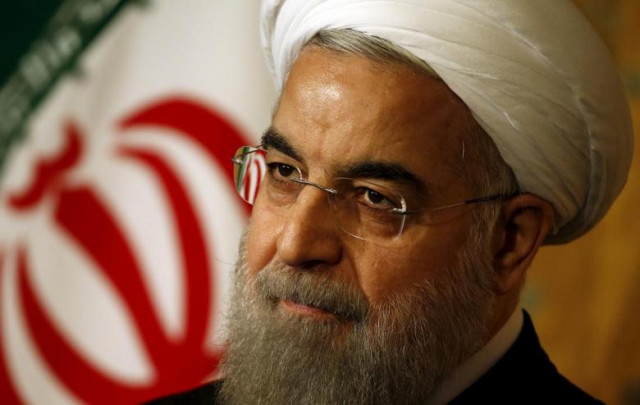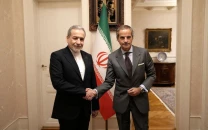Iran judiciary chief slams Rouhani election pledges
The Iranian president had promised to release jailed opposition leaders

Iran President Hassan Rouhani. PHOTO: REUTERS
During his election campaign, "a candidate said during a gathering of his supporters that he wanted to end the house arrest" of two reformist leaders, Ayatollah Sadegh Larijani said, without directly naming Rouhani.
"Who are you to end the house arrest?" he asked, according to the judiciary's Mizan Online news agency.
The jailed leaders in question are Mir Hossein Mousavi and Mehdi Karroubi, both presidential candidates in the election of 2009 that triggered months of protests after allegations of rigging.
Iran's Rouhani wins re-election
They have been under house arrest since February 2011 for their part in the protests.
Rouhani supporters chanted for their release during his campaign rallies - displays that were tolerated in the relatively liberal atmosphere that attends election periods when the regime is keen to maximise participation.
"Some people are trying to provoke a populist movement to question the legal decisions of the country's bodies," Larijani said, and warned the press to stop promoting such efforts or the judiciary "will intervene".
Rouhani promised to work for their release - as he did during the last campaign in 2013 - but he has no control over the conservative-dominated judiciary.
He argued that an increased mandate would give him greater leverage to work for their release and ease other social restrictions.
But despite winning a convincing victory with 57 per cent of the vote, Rouhani is expected to face considerable push back from hardliners embedded in the judiciary and security services.
What's at stake in Iran's presidential election?
Larijani said the decision to place Mousavi and Karroubi under house arrest was taken by the Supreme Council of National Security, which was the only authority able to reverse the order.
As president, Rouhani actually presides over this council, but it also includes many top political and military leaders, and its decisions must be approved by supreme leader Ayatollah Ali Khamenei, who has continued to take a hard line regarding the 2009 protests, which he refers to as "the sedition".


















COMMENTS
Comments are moderated and generally will be posted if they are on-topic and not abusive.
For more information, please see our Comments FAQ